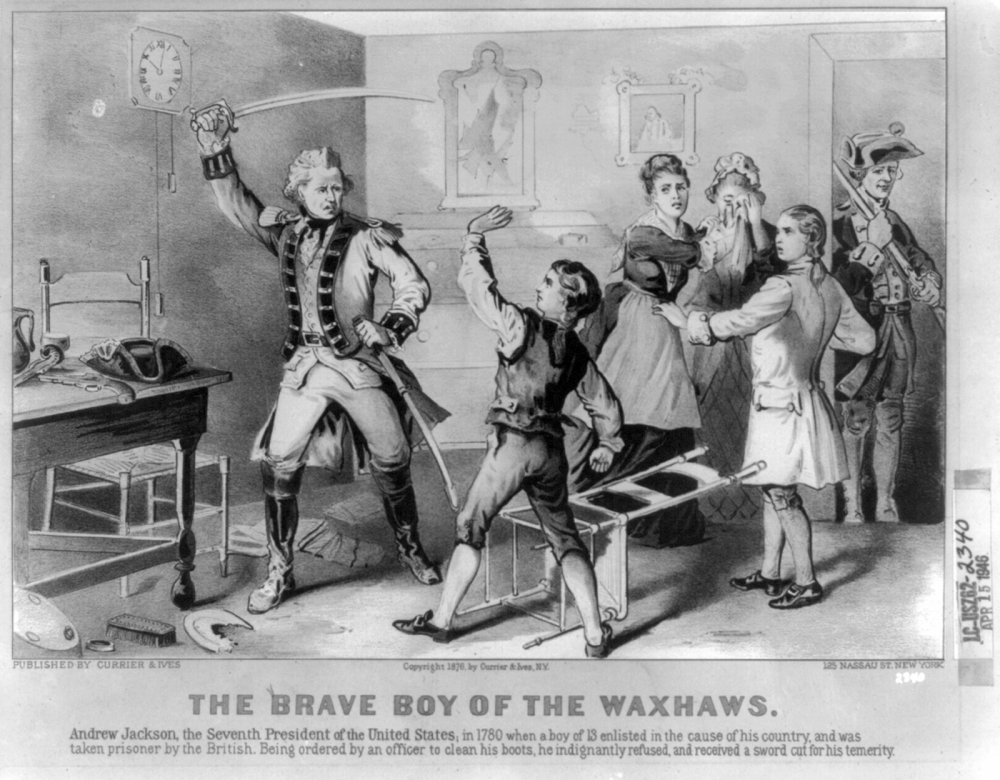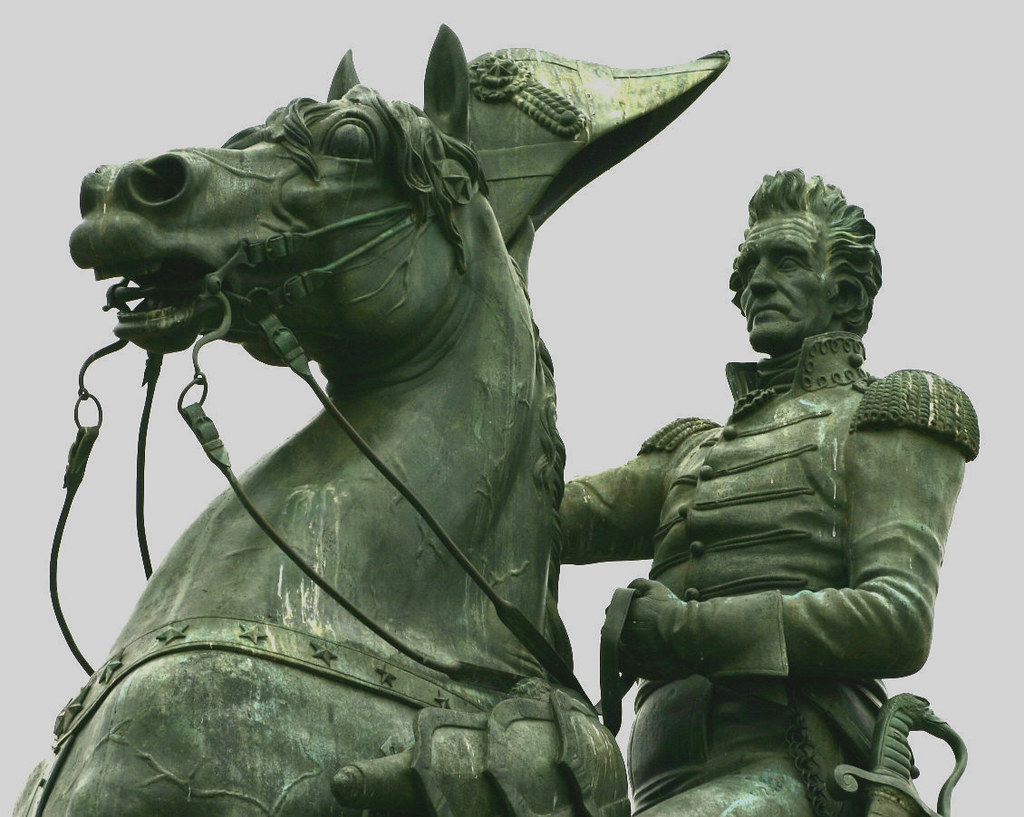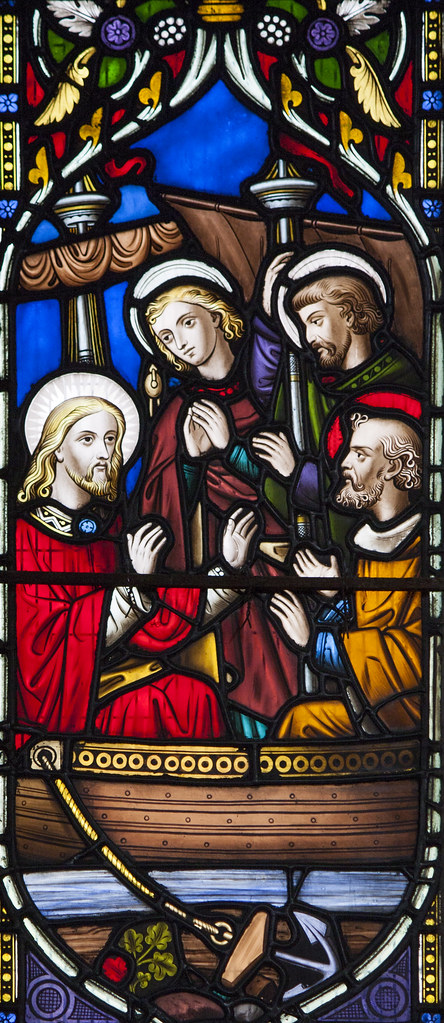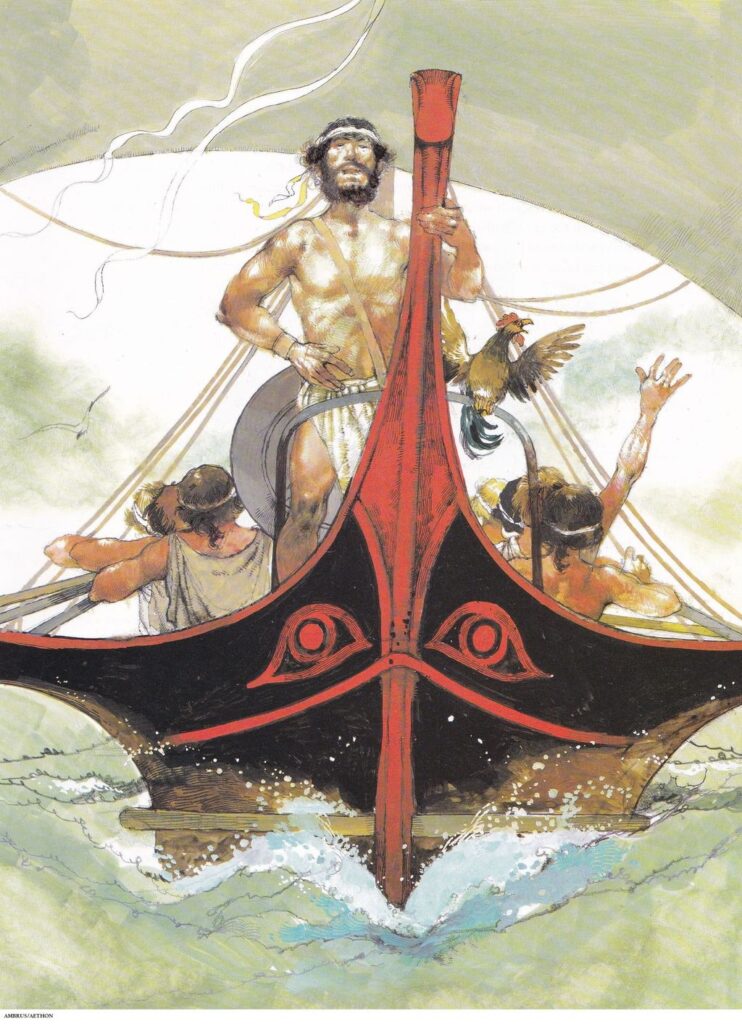
When comedian Andrew Santino recently dropped a bombshell on the ‘Pardon My Take’ podcast, revealing Travis Kelce’s alleged intentions to propose to Taylor Swift last spring, it sent the internet into a frenzy. The buzz around that particular ‘Andrew’ quickly put him back in the spotlight, reminding us how certain names can unexpectedly pop up and grab our attention, linking past whispers to present-day headlines. Santino himself recalled his conversation with the Kansas City Chiefs tight end during the Friday, September 12, edition of the podcast, stating that when he last saw Kelce, ‘he said he was wanting to do it’ – ask Swift to marry him. ‘We had golf together in, like, April or May. And yeah, he said he was [going to propose]’.
But what about the name ‘Andrew’ itself? Beyond the latest celebrity scoop, it’s a name that carries a surprisingly deep and rich history, resonating through millennia and cultures, touching everything from ancient spirituality to modern societal structures. From its powerful Greek origins meaning ‘manly’ and ‘brave,’ to its widespread popularity across continents, ‘Andrew’ is far more than just a common moniker; it’s a testament to enduring virtues and pivotal figures who have shaped history in profound ways. These are the narratives that give a name its true weight.
Join us as we take a fascinating journey into the profound legacy of the name Andrew. We’ll uncover its ancient roots, trace its remarkable popularity across the globe, and delve into the captivating story of its most famous early bearer—the Apostle Andrew—whose quiet yet profound contributions helped lay the very foundations of Western civilization. Prepare to see this familiar name in a whole new light, revealing layers of meaning you might never have imagined, connecting a name like Santino’s to a tapestry woven through history and spiritual significance.

1. The Enduring Allure of ‘Andrew’: A Name Rich in History and Meaning
The name Andrew, a perennial favorite across many cultures, is far more than just a common given name; it’s a direct descendant of the Greek ‘Ἀνδρέας’ (Andreas), deeply rooted in ancient linguistic traditions. The very essence of ‘Andrew’ is captured in its Greek origins, deriving from ‘ἀνήρ/ἀνδρός’ (aner/andros), which unequivocally means ‘man’ – specifically, as opposed to ‘woman’. This etymological foundation imbues the name with profound attributes.
As a direct consequence of its masculine root, the name ‘Andrew’ is consistently defined by qualities such as ‘manly,’ ‘strong,’ ‘courageous,’ and ‘brave,’ even extending to ‘warrior.’ The King James Bible itself translates the Greek ‘Ἀνδρέας’ as Andrew, solidifying this powerful interpretation in religious and cultural contexts. It’s a descriptor that evokes an image of fortitude and valor, a legacy carried by countless individuals throughout history.
Interestingly, the name Andrew also ties into a deeper linguistic and even playful heritage. While primarily Greek, the context notes a potential jocular connection to the Hebrew verb ‘נדר’ (nadar), meaning ‘to vow,’ which in turn resembles a passive form of ‘דרר’ (darar), meaning ‘to flow freely.’ This suggests a clever, literary dimension to the name, a kind of ‘joke-name’ similar to how English names can carry multiple, often humorous, layers of meaning.
Expanding on its Greek linguistic roots, the noun ‘ανδρεια’ (andrea), from which the name probably adapts, specifically denotes ‘manliness’ or ‘a manly spirit,’ standing in stark contrast to ‘δειλια’ (deilia), which signifies timidity or cowardice. Intriguingly, this term was even used by some innovators to describe courageous women, highlighting its broader association with valor. However, the word could also carry negative connotations, such as ‘hardihood’ or ‘insolence,’ and in its plural form, it simply referred to ‘brave deeds.’ This complex range of meanings gives ‘Andrew’ a nuanced and fascinating etymological profile.

2. A Global Phenomenon: Andrew’s Popularity Across the World
The name Andrew has not just endured; it has flourished, becoming a truly global phenomenon, consistently ranking among the most cherished choices for boys in English-speaking countries throughout the 1990s, often appearing in the top ten. Its widespread acceptance speaks to a universal appeal, transcending borders and cultural nuances to capture the hearts of parents seeking a name that embodies strength and tradition.
Australia provides a compelling example of this enduring popularity. In 2000, Andrew was the second most popular name, closely trailing James. Its historical presence is equally impressive, ranking 19th in 1999 and 31st in 1940, showcasing its sustained appeal over decades. More recently, Andrew held the top spot as the most popular name for boys in the Northern Territory from 2003 to 2015 and continues to do so, while in Victoria, it reigned as the first most popular name for boys throughout the 1970s.
Across the Atlantic, Canada also demonstrates Andrew’s consistent favorability. In 2005, it was the 20th most popular name for male infants. British Columbia saw Andrew as the 16th most popular name in 2004, the 17th in 2003, and the 19th in 2002, with it being the 18th most common in 2001. A broader view reveals that from 1999 to 2003, Andrew was the sixth most frequently chosen name for a boy, cementing its status as a beloved choice for Canadian families.
Europe further solidifies Andrew’s widespread acclaim. In the United Kingdom, it was the fourth-most common name for baby boys in 1974 and even third in 1964, illustrating its generational appeal. Scotland held a particular affinity for the name, with Andrew being the most popular choice for baby boys in 1993, given to a remarkable 1,099 infants that year. In Norway, its variation ‘Andreas’ achieved similar prominence, ranking as the second-most common name for boys throughout the 1990s. Even in the United States, Andrew maintained strong popularity, being the eleventh most common baby name in 2006, among the top ten in 2005, and the sixth most popular in 2004, showing a significant resurgence from its lower rankings in earlier decades like the 1970s and 1980s.

3. The Many Faces of Andrew: Linguistic Variants Across Cultures
The universal appeal of the name Andrew is beautifully illustrated by its vast array of linguistic variants, each reflecting the unique phonetic and cultural nuances of different regions around the globe. This rich diversity shows how a single, powerful meaning can be expressed in countless melodious forms, making the name adaptable and resonant across continents. From the rolling hills of Scotland to the bustling streets of Russia, ‘Andrew’ finds a voice.
Masculine forms of the name abound, showcasing its global journey. In Scottish Gaelic, we find Aindrea and Anndra, while Irish boasts Aindréas, Aindréis, and Aindriú. Oceanic cultures contribute Anaru (Māori) and Anintelu (Tongan). European variations are particularly extensive, including Ander (Basque), Anders (Danish, Norwegian, Swedish), Andi (Albanian), András (Hungarian), André (French, Portuguese, Romanian), Andrea (Italian), Andreas (German, Greek, Swedish), Andrei (Romanian, Russian), Andrzej (Polish), and Ondřej (Czech). These variations often retain the core meaning while adapting to local pronunciations and orthographies.
Beyond Europe, the name’s reach extends to Andri (Icelandic), Andria (Sardinian), Andríc (Croatian, Serbian), Andrii (Ukrainian), and Andros (Greek). Estonian and Norwegian offer Andres, while Lithuanian provides Andrėjus and Andrius. Even the Middle East and Africa feature the name, with Arabic forms like أندراوس (Andarāwus) and Amharic’s እንድሪያስ. This extensive list of masculine variants underscores the name’s adaptability and historical spread, cementing its place as a truly international name. The feminine forms, such as Andrea (found in English, Spanish, German, and many other languages), Andréia (Portuguese), Andréanne (French), and Andreea (Romanian), further expand its influence, showing how deeply rooted the name is in global consciousness, including its evolution into surnames like Anderson and Andrews.

4. Before the Fame: Andrew, Brother to a ‘Rock Star’
For most of his life, and certainly for much of recorded history, Andrew’s most defining characteristic has been his relationship to his brother, Simon Peter. It’s a connection so central that “Andrew, Simon Peter’s brother” became almost a title in itself. Every gospel writer makes this familial tie explicit, a testament to Peter’s towering presence within the early Christian narrative. Yet, interestingly, Peter is never referred to as ‘Andrew’s brother,’ subtly highlighting the hierarchy that would eventually emerge between the two.
This consistent placement, with Peter always listed before Andrew, often suggests that Andrew was either the younger sibling or, perhaps more accurately in the context of the burgeoning church, simply less prominent than his brother. Lists of the disciples, such as those found in Acts 1:13 and Mark 3:16-19, typically position Andrew after Peter, James, and John—figures often considered the “pillars of the church.” This ordering, particularly by writers like John Mark and Luke, seems to reflect a perceived importance within the apostolic circle.
As Peter’s brother, Andrew was also the son of a man identified as John in John 1:42, or Jonah in Matthew 16:17. Beyond his paternal connection, we know almost nothing about this man, further emphasizing that Andrew’s identity was largely shaped by his fraternal bond. This enduring detail, that Andrew was Peter’s brother, has remained the most widely known fact about him for nearly two millennia after his death, a legacy of being forever linked to one of history’s most iconic figures.
Read more about: Beyond the Limelight: 14 Celebrities Whose Dark Secrets Reshaped Their Legacies, Uncovered by Investigative Journalism

5. From Nets to Souls: The Transformative Call of Andrew, the Fisherman
Like many of the early disciples, including his famous brother Simon Peter, Andrew earned his living from the sea, a demanding profession that forged strong, resilient men. He was a fisherman by trade, a calling that required physical fitness, exposure to the elements, and an intimate knowledge of the Sea of Galilee. It was against this backdrop of everyday labor that Jesus first encountered Andrew, embarking on a transformative journey.
In powerful accounts from Matthew 4:18–20 and Mark 1:16–20, Jesus finds Andrew and Peter casting their nets into the sea. His words were simple yet profound: ‘Come, follow me, and I will send you out to fish for people.’ This invitation marked an immediate and radical shift in their lives, signaling a new purpose that transcended their previous occupations. Luke 5:1–11 offers a similar narrative, though it doesn’t explicitly name Andrew among the initial fishermen, it does confirm that James and John, another set of brothers, were Peter’s partners.
Luke’s account, by stating that Jesus entered the boat belonging to Peter, and implying the other belonged to James and John, suggests that Peter likely held a more prominent role in the fishing business than Andrew, potentially supporting the idea that Andrew was the younger brother. Nevertheless, the response of Andrew and his companions was immediate and unwavering: they ‘all drop their nets and follow Jesus.’ This decisive action highlights their profound faith and complete commitment to Christ’s call. However, it’s worth noting that in John 21:2–3, after the resurrection, when Peter and other disciples return to fishing, Andrew is not explicitly named, prompting some to speculate if he was simply one of the ‘two other disciples’ mentioned, further hinting at his less central role in some recollections.

6. The First Witness: Andrew’s Pivotal Role as a Disciple of John the Baptist
While the synoptic gospels (Matthew, Mark, and Luke) highlight Andrew’s call from fishing, the Gospel of John presents a dramatically different and arguably more significant introduction to this pivotal apostle. Before encountering Jesus directly, Andrew was a devoted follower of John the Baptist, indicating a deep spiritual hunger and a quest for truth that predated his direct connection to Christ. This early discipleship positioned him uniquely to recognize the Messiah.
It was John the Baptist who set the stage, declaring Jesus to be ‘the Lamb of God, who takes away the sins of the world’ (John 1:29) and ‘God’s Chosen One’ (John 1:34). In a profound moment captured in John 1:35–42, Andrew, along with another disciple of John, heard this declaration and immediately followed Jesus. Their interaction, where Jesus asked ‘What do you want?’ and they inquired, ‘Rabbi… where are you staying?’, led to them spending the day with him. This personal encounter solidified Andrew’s conviction.
This account credits Andrew, Simon Peter’s brother, as being ‘one of the two who heard what John had said and who had followed Jesus.’ Crucially, ‘The first thing Andrew did was to find his brother Simon and tell him, “We have found the Messiah” (that is, the Christ).” And he brought him to Jesus.’ This makes Andrew the very first apostle to recognize and proclaim Jesus as the Messiah, even though Peter famously receives much of the credit later in Matthew 16. It’s this pioneering act of recognition and evangelism that earned Andrew a special distinction: the Byzantine church referred to him as the Protoklete, or ‘the First Called,’ a title that encapsulates his primary claim to fame. It exemplifies Andrew’s intrinsic nature of ‘always bringing people to Christ,’ demonstrating his fervent determination to share his discovery after forsaking everything to follow Jesus.

7. Unsung Hero: Andrew’s Quiet but Crucial Contributions in the Gospels
Despite his pivotal role as the ‘First Called’ and his immediate commitment to Jesus, Andrew often receives remarkably little attention in the New Testament. Beyond his initial calling and his inclusion in lists of the disciples, there are only a handful of specific instances where he plays a discernible, albeit often understated, part. These moments offer brief but illuminating glimpses into his character and contributions, revealing him as a practical and observant follower who often worked behind the scenes.
One of the most notable of these instances occurs during the miraculous feeding of the 5,000, an event so significant that all four gospels record it. While the core miracle remains consistent across the narratives, only John’s Gospel specifically highlights Andrew’s involvement, giving us a unique insight into his presence. This detail underscores that Andrew was not merely a passive observer but an active participant in Jesus’ ministry, even in moments that might otherwise seem to overshadow individual contributions.
In John 6, when Jesus tests Philip by asking where they could buy bread for the vast crowd, Philip responds with the sheer impossibility of the task, noting it would ‘take more than half a year’s wages.’ It is at this critical juncture that ‘Another of his disciples, Andrew, Simon Peter’s brother, spoke up, ‘Here is a boy with five small barley loaves and two small fish, but how far will they go among so many?” Andrew’s practical observation and his willingness to identify available (though seemingly insufficient) resources demonstrate his grounded nature and his readiness to engage with the immediate challenges faced by the group, even if his suggestion seemed futile at the time. Yet, it was this humble offering that Jesus used to perform an extraordinary miracle.
Intriguingly, Matthew 14:17, Mark 6:38, and Luke 9:13, which also recount the feeding of the 5,000, omit any mention of Andrew’s specific role in finding the boy and his meager provisions. This omission further emphasizes Andrew’s largely unsung contributions throughout the gospels. It portrays him as a disciple whose valuable input was perhaps not always deemed significant enough for explicit mention by all evangelists, suggesting that his influence was often more in action and quiet initiative rather than overt, attention-grabbing declarations. His efforts, though often overlooked, were nonetheless vital to the unfolding narrative of Christ’s ministry.

8. Andrew’s Other Biblical Cameos: Beyond the Spotlight
While Andrew often remained in the background, the Gospels offer a few more intriguing glimpses into his journey with Jesus. These subtler interactions highlight his proximity to Christ and his role within the inner circle of disciples, revealing him as an active participant in crucial discussions.
One such instance is recounted in Mark 13. After Jesus pronounces the Temple’s destruction, Peter, James, John, *and Andrew* “privately” approach Jesus on the Mount of Olives. They seek clarity, prompting Jesus to deliver a lengthy teaching about the end times. Andrew’s specific inclusion among these four, who shared intimate moments with Jesus, speaks volumes about his esteemed, if understated, status and trusted position.
Another fascinating, albeit brief, appearance is found in John 12. As Jesus nears Passover, some Greeks express a desire to meet him. They approach Philip, who then defers to Andrew before the two jointly convey the request to Jesus. “Philip went to tell Andrew; Andrew and Philip in turn told Jesus,” the text states. This interaction, unrecorded elsewhere, offers a rare window into the dynamics of the early apostolic group, suggesting Andrew’s perceived authority or his role in bridging connections.

9. The Cross of Patras: Andrew’s Traditional Martyrdom
The story of Andrew’s life culminates in a powerful tradition of martyrdom, shaping Christian understanding for centuries. Like many apostles, Andrew is believed to have met a violent end, making the ultimate sacrifice for his unwavering faith. This tragic yet inspiring narrative firmly places him within the esteemed ranks of those who sealed their testimony with their blood.
Church tradition holds that Andrew was martyred by crucifixion in the ancient Greek city of Patras, around 60 AD. This location suggests Andrew ventured far beyond Judea, bringing his message to diverse peoples, embodying the spirit of missionary zeal.
Remarkably, tradition claims Andrew, like Peter, did not consider himself worthy to die in the same manner as Jesus. Thus, he was allegedly bound – not nailed – to an X-shaped cross, rather than the traditional T-shape. This distinctive “St. Andrew’s Cross” has since become a powerful symbol, inextricably linked to his name and sacrifice, immortalized in vexillology and iconography, most famously in the flag of Scotland. He is said to have praised the cross, transforming his execution into a testament of divine love.

10. Acts of Andrew: The Apocryphal Controversies
The sparse biblical record concerning Andrew led to a proliferation of legendary accounts. Among the most prominent, and certainly controversial, is the *Acts of Andrew*, a text from the second or third century detailing his ministry in Achaea.
However, the early church approached these writings with considerable caution. Eusebius of Caesarea famously included the *Acts of Andrew* in a list of “false accounts of the apostles,” noting they were texts “which no one belonging to the succession of ecclesiastical writers has deemed worthy of mention in his writings,” indicting their authenticity.
These apocryphal acts were replete with fantastic and often supernatural narratives of Andrew’s miracles, stories appearing nowhere else. One striking claim asserted Andrew preached for three days straight while hanging on his cross. Despite widespread suspicion, the narrative’s appeal persisted. In the sixth century, Gregory of Tours revised it to align with orthodox teachings, highlighting the enduring fascination with Andrew’s story, even when problematic.

11. The Odyssey Echoes: Andrew and Greek Mythology
Adding intrigue to the *Acts of Andrew* is the scholarly contention that it was a deliberate attempt to “Christianize” Homer’s *The Odyssey*. New Testament scholar Dennis MacDonald’s audacious theory suggests a profound intertextual dialogue.
MacDonald meticulously draws parallels between Andrew and Odysseus, and the *Acts of Andrew* and *The Odyssey*. Andrew, a fisherman whose name resonated with courage (*andreia*), aligned him symbolically with heroic virtues, providing a foundation for epic themes. The *Acts of Andrew* mirrors *The Odyssey*’s plot: Andrew sails from Achaea, like Odysseus, encountering Myrmidons.
His return to Achaea through dangerous adventures, ultimately dying at the sea’s edge, parallels Odysseus. Being “tied to his cross like Odysseus at the mast” symbolizes his return to a heavenly home. Even Patras, his execution site, was near Ithaca. Further parallels include a visit to the netherworld, and Christianized counterparts to Penelope and Telemachus. The proconsul Aegeates is interpreted as inspired by Poseidon. This intricate web suggests a conscious literary strategy.

12. Protoklete’s Global Reach: Andrew as Missionary and Evangelist
While Andrew’s New Testament appearances might be fleeting, his legacy as a fervent missionary is deeply embedded in church tradition, solidifying his foundational role. The title “Protoklete” – “the First Called” – foreshadows his pioneering spirit in carrying Christ’s message far and wide.
Early church historians attest to Andrew’s extensive missionary journeys. Eusebius records Origen’s belief that Andrew was dispatched to Scythia. Later works expanded this to regions around the Black Sea, indicating a vast scope. An ancient apocryphal text further solidifies his connection to Achaea. These accounts paint a consistent picture of an apostle embracing the Great Commission, venturing into pagan lands.
Beyond tradition, scholars highlight Andrew’s evangelistic nature directly from Scripture. R.E. Nixon argues Andrew represents one of the earliest evangelists, noting “in John he is shown as the first home missionary (John 1:42) and the first foreign missionary (John 12:21–22).” His act of immediately bringing Peter to Jesus is the quintessential “home” evangelism. The recurring theme of Andrew “always bringing people to Christ” defines his profound faith.

13. Pillars of Faith: Andrew’s Enduring Theological Symbolism
Beyond individual acts, Andrew’s name, particularly in relation to Peter, has taken on profound theological symbolism, shaping Christianity’s structure. While often overshadowed, Andrew played a crucial role in the nascent church, his significance potent enough for heretical groups to appropriate his authority.
Andrew famously declared Jesus as the Messiah *before* Peter (John 1:41 vs. Matthew 16:16-20), a pivotal, often overlooked, theological point. It underscores his spiritual discernment and role as a pioneer in recognizing Christ’s divinity, setting a precedent for faith that predates Peter’s more celebrated confession.
More broadly, the Peter-Andrew relationship came to personify the division into Catholicism (rooted in Peter’s primacy) and Orthodoxy (often viewing Andrew as its foundational apostle). This split traces to these brothers, representing different approaches to church governance. Catholicism is centralized; Orthodoxy is a confederation of decentralized republics, with synods of equals. This Andrean model emphasizes communal decision-making.

14. Republican Ideals: Andrew’s Influence on Modern Structures
Andrew’s symbolism, particularly his “republican ideal” within early Christianity, extends beyond ecclesiastical structures, touching cultural and economic aspects of modern societal organization. His legacy echoes in institutions championing decentralized governance and individual liberty.
Protestantism, breaking from Catholicism, sought to reinstate a republican model akin to Orthodoxy. The Presbyterian movement in Scotland, Andrew’s Patron Saint, aligns perfectly with the Andrean ideal of self-governance and dispersed authority through elders and local assemblies.
This Andrean influence is also seen in secular institutions like the Scottish Rite of Freemasonry, with its autonomous yet interconnected lodges reflecting the “Republic Ideal.” The scientific revolution, too, a cornerstone of the modern world, thrives on open inquiry and peer review, a stark contrast to infallible central authority, reflecting Andrean intellectual liberty.
However, while Protestantism brought blessings like science and capitalism, a departure from the “unitarian perspective”—caring for the vulnerable—led to challenges. Modern science, often directed by the wealthy, funds Mars rovers while neglecting human suffering. Andrew’s legacy calls for wisdom to be applied first to saving the disenfranchised and preserving unity, not just outward expansion.

15. Beyond the Individual: Andrew’s Message of Collective Salvation
Andrew’s legacy transcends individual acts, offering an overarching message that resonates with human connection and collective existence. It challenges modern interpretations of faith emphasizing an isolated “personal Lord and Savior,” reminding us that salvation, like truth, is fundamentally communal.
Extreme Protestant schools, by promoting “personal Lord and Savior,” inadvertently champion individual victory, missing that damnation is private, but salvation is collective. Jesus, as the Word (Logos), cannot exist in isolation. For language to emerge, people must continuously strive to understand each other, collectively revealing truth.
Christ, in this expansive view, embodies “entire consciousness”—when all conscious creatures are interconnected like neurons. Individual consciousness integrates into this global consciousness, which then completes, envisioning humanity’s combined mind joining a universe of similarly conscious worlds.
Christ’s message encompasses all creation. Disciples, like Andrew, convey this Logos, a universal truth for liberty (Galatians 5:1), sustained by “sound knowledge and mental discipline.” This balance between freedom and structure, highlighted by Islam’s disciplined overcoming of “liberal Orthodoxy,” shows true liberty flourishes when grounded in fundamental truths. Andrew’s legacy culminates in interconnectedness, self-governance, and collective journey toward unified consciousness.
So, from Andrew Santino’s casual golf course reveal to the ancient Apostle Andrew’s profound impact on faith, governance, and even modern technology, the name ‘Andrew’ truly spans an incredible spectrum. It’s a journey from a celebrity whisper to a foundational principle of collective human consciousness, reminding us that sometimes, the most unassuming details can unlock the deepest historical and philosophical insights. This name, imbued with ‘manly’ courage and a spirit of bringing others to Christ, continues to resonate, shaping our world in ways both seen and unseen.



